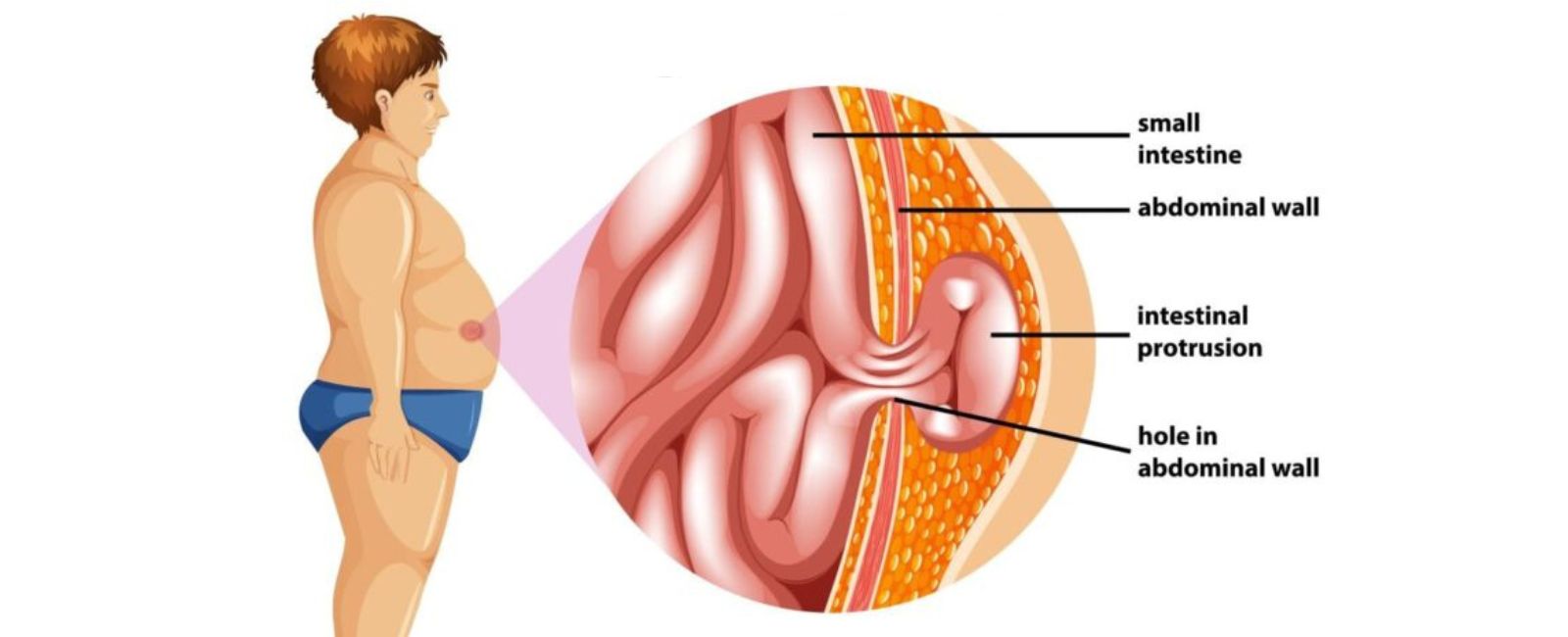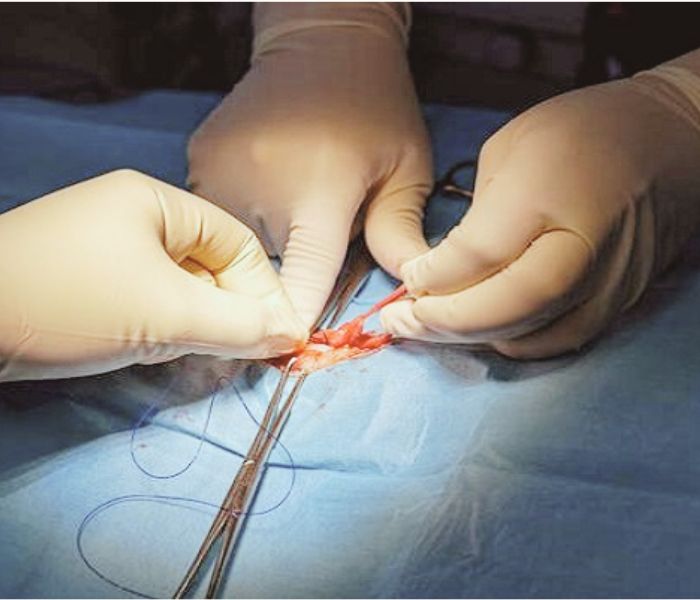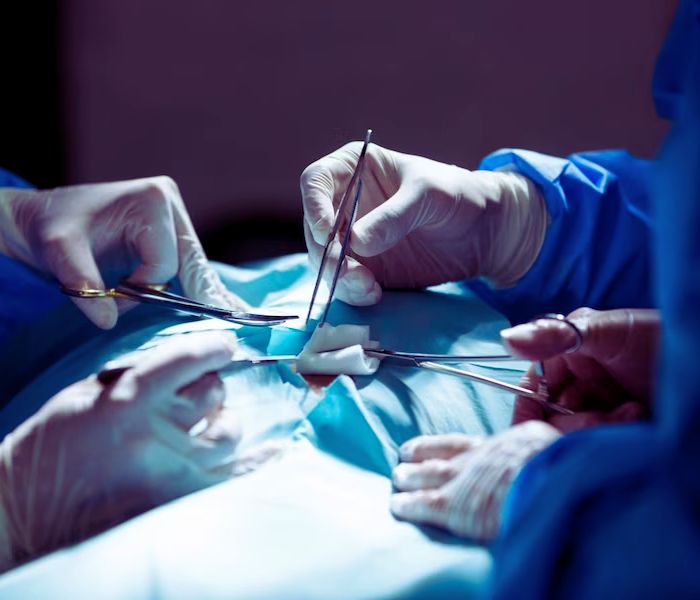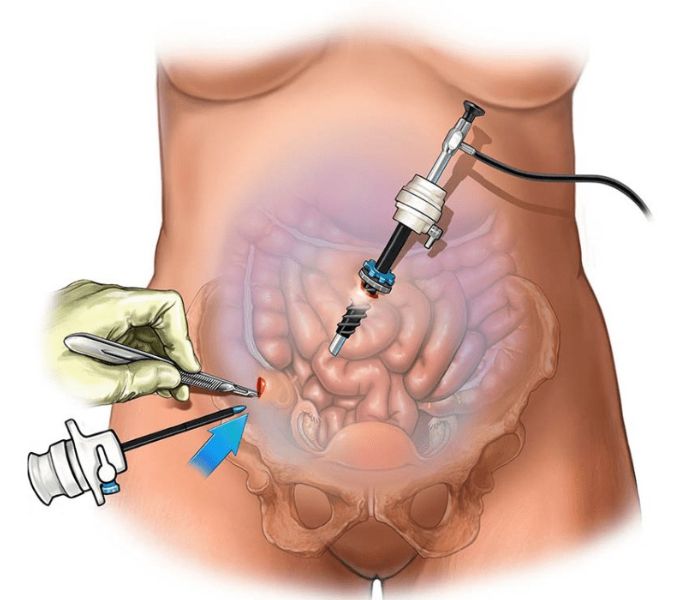
Best Hernia Treatment in Hyderabad

What is Hernia?
A hernia is a condition in which a part of the body protrudes through a weak point or tear in the surrounding muscle or tissue. This can occur in various areas of the body, but the most common types are inguinal (groin), femoral (thigh), umbilical (belly button), and hiatal (upper stomach).
Hernias can be caused by a variety of factors, including genetic predisposition, injury, and chronic strain or pressure on the affected area. Symptoms may include a visible bulge, pain or discomfort, and difficulty with bowel movements or urination. Treatment options include surgery to repair the hernia and prevent further complications.
Causes of Hernia:
- Increased pressure in the abdomen: Activities such as lifting heavy objects, coughing, sneezing, or straining during bowel movements can increase pressure in the abdomen and cause a hernia.
- Obesity: Excess weight can put pressure on the abdominal wall and increase the risk of hernia.
- Chronic constipation: Straining during bowel movements can lead to a hernia.
- Previous surgery: Any surgery that involves making an incision in the abdomen can weaken the abdominal wall and increase the risk of hernia.
- Gender: Hernias are more common in men than in women due to the nature of the male abdominal wall.
- Smoking: Smoking can increase the risk of hernia by weakening the muscles in the abdominal wall and causing chronic coughing.
- Prolonged standing or sitting: People who stand or sit for prolonged periods of time can experience increased pressure in the abdomen and are at a higher risk of hernia.
- Pregnancy: During pregnancy, the abdominal wall can be stretched and weakened, leading to a hernia.
Know more about Hernia:
Types of hernias:
Inguinal Hernia: This is the most common type of hernia, and it occurs when the abdominal contents, typically the intestine, protrude through a weak point in the inguinal canal, which is located in the lower abdomen.
Hiatal Hernia: This type of hernia occurs when a portion of the stomach pushes through the diaphragm into the chest cavity.
Femoral Hernia: This type of hernia occurs when the abdominal contents protrude through the femoral canal, which is located in the upper thigh.
Umbilical Hernia: This type of hernia occurs when the abdominal contents protrude through the umbilicus (belly button). It is most commonly seen in infants and young children.
Incisional Hernia: This type of hernia occurs after abdominal surgery when the abdominal contents protrude through the surgical incision.
Symptoms Of Hernia:
- A bulge or lump in the affected area (such as the abdomen or groin)
- Pain or discomfort in the affected area, especially when lifting heavy objects or coughing
- A feeling of pressure or fullness in the affected area
- Weakness or fatigue in the affected area
- Nausea or vomiting
- Constipation or difficulty passing stool
- A burning or tingling sensation in the affected area
- Loss of appetite
- Difficulty urinating or passing gas
- In severe cases, hernias can lead to strangulation, where the blood flow to the affected area is blocked, causing severe pain and swelling.
Hernia Surgery Methods:

Open surgery:
This is the traditional method of hernia repair, where a large incision is made in the abdomen to access the hernia. The surgeon then pushes the protruding tissue back into place and repairs the weakened muscle or tissue with sutures or mesh.

Laparoscopic surgery:
This is a minimally invasive method of hernia repair, where several small incisions are made in the abdomen. The surgeon uses a laparoscope (a thin, flexible tube with a light and camera) to view the hernia and repair it using sutures.

Robot-assisted surgery:
This is a type of laparoscopic surgery where the surgeon uses a computer-controlled robot to perform the surgery. The robot allows for more precise and controlled movements, which can lead to better outcomes and faster recovery times.
Frequently Asked Questions(FAQ)
What is a hernia?
What are the common types of hernias?
What are the symptoms of a hernia?
What causes a hernia?
What are the treatment options for a hernia?
Is hernia surgery necessary?
What is the recovery time after hernia surgery?
Can hernias recur after surgery?
Success Stories
A true Master in his job!!! His expertise, care, calm approach towards patients & family - I just liked everything about Dr. Jagan Sir.
Meet Our Specialist
Dr. B Jagan Mohan Reddy is an experienced Gastroenterologist Surgeon in Hyderabad with an overall experience of 14 years.
Dr B Jagan Mohan Reddy
drjagangastrocare.com
MBBS,MS, M.CH Consultant Surgical Gastroenterologist, Laparoscopic, Bariatric, Advanced Robotic, Colorectal, Hepato Biliary & Pancreatic Surgeon

